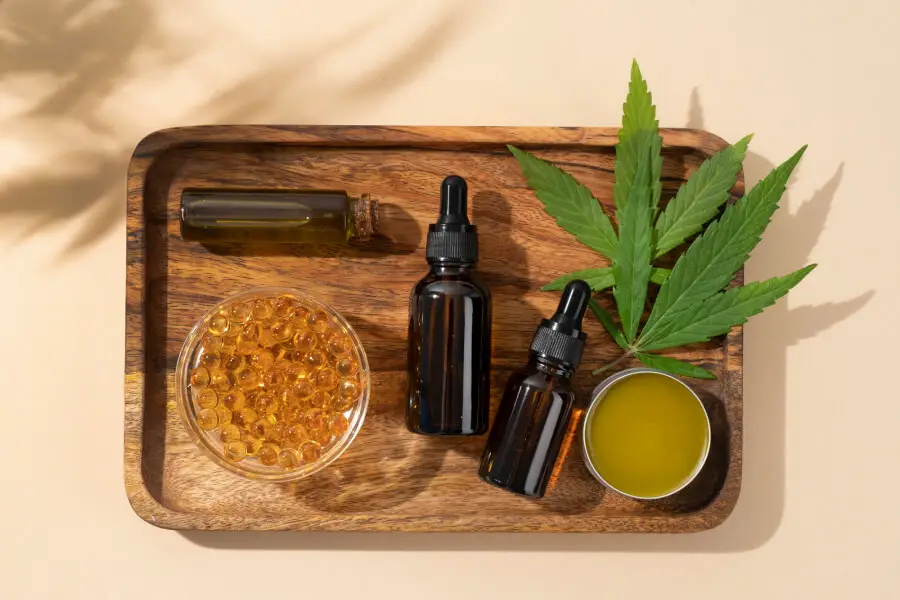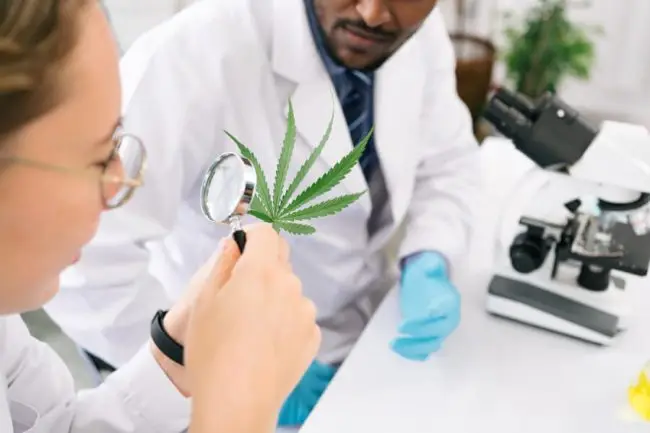Cannabidiol (CBD) has gained immense popularity for its potential health benefits, ranging from pain relief to anxiety reduction.
However, like any substance, CBD can have side effects and pose certain risks. This article explores the side effects and toxicity of CBD, offering an in-depth look at what you need to know before taking CBD.
Types of Cannabinoids
Cannabinoids are compounds found in the cannabis plant. They can be classified into:
- Endocannabinoids: Naturally occurring in the body.
- Phytocannabinoids: Found in cannabis plants, including CBD and THC.
- Synthetic Cannabinoids: Man-made chemicals designed to mimic cannabinoids.
At first, CBD interacts with CB1 and CB2 receptors in the ECS ( Endocannabinoid system )
CBD does not produce a “high,” unlike THC (Tetrahydrocannabinol) making it a popular choice for those seeking the therapeutic benefits of cannabis without the psychoactive effects.
Negative Side Effects
Short-term Effects
While CBD is generally considered safe, it can cause some short-term side effects, including:
- Drowsiness: Some users report feeling sleepy after taking CBD, especially in higher doses.
- Dry Mouth: CBD can inhibit saliva production, leading to a dry sensation in the mouth.
- Gastrointestinal Issues: Diarrhea and changes in appetite or weight are occasionally reported.
Long-term Effects
The long-term effects of CBD use are still being studied, but potential concerns include:
- Liver Health: High doses of CBD have been linked to increased liver enzymes, which could indicate liver stress or damage.
- Psychological Impact: Prolonged use may affect mood and behavior, although more research is needed.
Interactions with Other Medications
CBD can interact with other medications, potentially affecting their effectiveness. This is especially relevant for drugs metabolized by the liver, as CBD can inhibit certain liver enzymes.
Is CBD Toxic to Humans?
Generally, Cannabinoids is considered non-toxic and well-tolerated, even at high doses. However, some users may experience adverse reactions, particularly if they consume contaminated or low-quality products.
Symptoms of CBD Overdose
Although rare, a CBD overdose can occur, leading to symptoms such as:
- Severe Drowsiness
- Nausea and Vomiting
- Confusion or Disorientation
How to Avoid CBD Toxicity
- Start with a Low Dose: Gradually increase your dose to assess tolerance.
- Choose High-Quality Products: Opt for CBD products that are third-party tested for purity and potency.
- Monitor for Interactions: Be aware of how CBD may interact with other medications or supplements.
Potential Contaminants in CBD Products
CBD products can be contaminated with various substances, including pesticides, heavy metals, and solvents. These contaminants can pose serious health risks, especially with long-term use.
The CBD market is still largely unregulated, leading to variability in product quality. Regulatory oversight is crucial for ensuring that products are free from harmful contaminants.
Contaminated CBD products can cause a range of health issues, from mild allergic reactions to more severe conditions like heavy metal poisoning or respiratory problems.
Genetic Factors Influencing CBD Metabolism
Genetics can play a significant role in how individuals metabolize CBD. Variations in the cytochrome P450 enzymes, responsible for drug metabolism, can affect how quickly or slowly CBD is processed in the body.
Gender and Age Differences in CBD Effects
Gender and age can also influence CBD’s effects. Women and older adults may experience different side effects or require adjusted dosages compared to men and younger individuals.
How Lifestyle Choices Affect CBD Tolerance
Factors like diet, exercise, and overall health can impact how CBD is absorbed and utilized in the body. A healthy lifestyle may enhance the benefits of CBD and reduce the likelihood of adverse effects.
Emerging Research on CBD Side Effects
Recent studies have raised concerns about CBD’s potential to cause liver injury, especially at high doses. However, these findings are still under investigation, and more research is needed to fully understand the risks.
Effects of CBD on Pregnancy and Fetal Development
CBD’s impact on pregnancy and fetal development is not well understood. Pregnant or breastfeeding women are generally advised to avoid CBD products due to the lack of conclusive safety data.
Psychological Impacts of Prolonged CBD Use
There is limited evidence on the long-term psychological effects of CBD use. While it is generally considered safe, prolonged use could potentially affect mental health, particularly in individuals with pre-existing conditions.
Conclusion
CBD has shown promise as a therapeutic agent for different conditions, but you need to be fully aware of the potential side effects and toxicity risks.
By choosing high-quality products and staying informed, consumers can safely explore the benefits of CBD while minimizing potential risks.
FAQs
Are there any harmful side effects of CBD?
While generally well-tolerated, CBD can cause side effects like drowsiness, dry mouth, and gastrointestinal issues. It’s important to monitor your body’s response and consult with a healthcare provider if any severe reactions occur.
What is the toxic effect of cannabinoids?
CBD is considered non-toxic at standard dosages. However, in rare cases, high doses can lead to liver enzyme elevations and other adverse reactions. Contaminated products also pose a risk of toxicity.
Is it bad to take CBD too often?
Taking CBD frequently is generally safe, but it can lead to tolerance, where more of the substance is needed to achieve the same effects. Regular users should be mindful of their dosage and consult with a healthcare professional for personalized advice.
Is CBD good or bad for the brain?
Research on CBD’s effects on the brain is ongoing. Some studies suggest it may have neuroprotective properties, while others indicate potential risks with long-term use. As with any supplement, it’s best to use Cannabinoids cautiously and under medical supervision.







